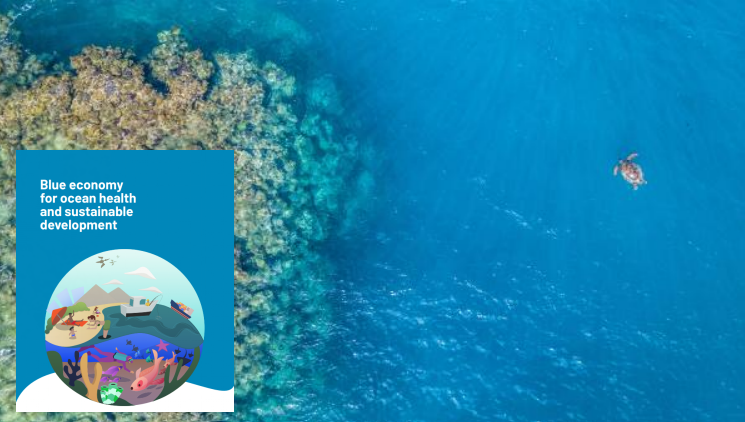
“𝐋𝐢𝐛𝐞𝐫𝐢𝐚 𝐢𝐬 𝐬𝐢𝐭𝐭𝐢𝐧𝐠 𝐨𝐧 𝐚 𝐦𝐮𝐥𝐭𝐢-𝐦𝐢𝐥𝐥𝐢𝐨𝐧-𝐝𝐨𝐥𝐥𝐚𝐫 𝐜𝐥𝐢𝐦𝐚𝐭𝐞 𝐟𝐢𝐧𝐚𝐧𝐜𝐞 𝐨𝐩𝐩𝐨𝐫𝐭𝐮𝐧𝐢𝐭𝐲—𝐛𝐮𝐭 𝐰𝐢𝐭𝐡𝐨𝐮𝐭 𝐚𝐜𝐭𝐢𝐨𝐧, 𝐭𝐡𝐞 𝐰𝐢𝐧𝐝𝐨𝐰 𝐢𝐬 𝐜𝐥𝐨𝐬𝐢𝐧𝐠 𝐟𝐚𝐬𝐭.“ 𝐹𝑟𝑜𝑛𝑡 𝑃𝑎𝑔𝑒 𝐴𝑓𝑟𝑖𝑐𝑎 𝑛𝑒𝑤𝑠𝑝𝑎𝑝𝑒𝑟.
While Liberia holds 𝟒𝟎% 𝐨𝐟 𝐭𝐡𝐞 𝐔𝐩𝐩𝐞𝐫 𝐆𝐮𝐢𝐧𝐞𝐚𝐧 𝐫𝐚𝐢𝐧𝐟𝐨𝐫𝐞𝐬𝐭 and 580 km of coastline, natural capital could generate tens of millions of dollars annually, but without a 𝐂𝐚𝐫𝐛𝐨𝐧 𝐌𝐚𝐫𝐤𝐞𝐭 𝐀𝐮𝐭𝐡𝐨𝐫𝐢𝐭𝐲 (𝐂𝐌𝐀) the country cannot currently access these revenues.
Across Africa, the establishment of national carbon strategies has proven decisive to unlock climate finance, ensure revenues remain in-country, and guarantee fair benefit-sharing with local communities.
1️⃣ Development of national voluntary carbon market strategies based on Paris Agreement articles 6.2 and 6.4 and bilateral corresponding adjustments enabled several countries (e.g. Kenya and Ghana) financiers for ecological preservation and restoration programs that can generate revenue for the country through carbon credits monetization.
Without a Carbon Market Authority (CMA) and a national registry, Liberia cannot issue or sell credits within a sovereign, internationally recognized framework. The CMA can set the regulatory framework and authorizes projects at the national level
2️⃣ Sovereign Carbon Initiatives are grounded in the Polluter-Pays principle, requiring international emitters to make local contributions for their emissions. In line with Article 6.8 of the Paris Agreement on non-market-based mechanisms, they enable a national carbon agency (for example under the supervision of a Carbon Market Authority) to directly collect these contributions from international polluters and generate immediate financing means for environmental and energy transition programs, benefiting the most vulnerable communities.
Such Sovereign Carbon Initiatives have been implemented with success in Djibouti in 2023 and in Gabon in 2025, by the Africa Sovereign Carbon Registry Foundation.
Both approaches (market- and non-market-based) are fully complementary and are opportunities for countries to implement ambitious national sustainable development strategy while generating significant sovereign revenues.
Africa Sovereign Carbon Registry Foundation welcomes Liberia’s growing interest in establishing a Carbon Market Authority.
💬 And as a natural resource economist aptly reminded the Liberian public: “𝑇ℎ𝑖𝑠 𝑖𝑠 𝑛𝑜𝑡 𝑎𝑛 𝑒𝑛𝑣𝑖𝑟𝑜𝑛𝑚𝑒𝑛𝑡𝑎𝑙 𝑙𝑢𝑥𝑢𝑟𝑦 — 𝑖𝑡 𝑖𝑠 𝑎𝑛 𝑒𝑐𝑜𝑛𝑜𝑚𝑖𝑐 𝑖𝑚𝑝𝑒𝑟𝑎𝑡𝑖𝑣𝑒.”
Read more here
